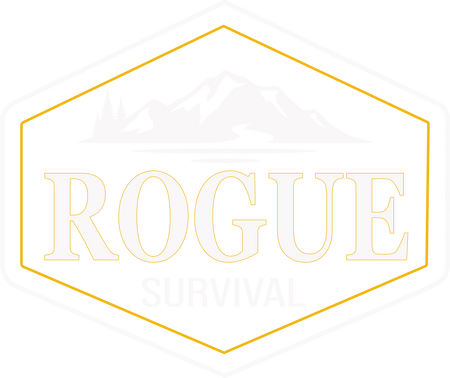
Where to begin for long term food storage?
Are you looking to start preparing for long term food storage? Whether you're a seasoned prepper or just starting out, having a reliable supply of food is essential for any emergency situation. In this blog post, we'll go over some tips on how to start preparing for long term food storage.
-
Determine Your Needs: The first step in preparing for long term food storage is to determine your needs. How many people will you be feeding? What dietary restrictions do you have? What is your budget? Answering these questions will help you determine the amount and types of food you need to store.
-
Choose the Right Foods: When it comes to long term food storage, not all foods are created equal. Look for foods that have a long shelf life and are nutrient-dense such as canned fruits and vegetables, dried grains, beans, and legumes, powdered milk, and freeze-dried foods.
-
Store Food Properly: Proper storage is crucial for maintaining the quality of your stored food. Make sure to store your food in a cool, dry place away from direct sunlight and pests. Use air-tight containers or mylar bags with oxygen absorbers to prevent spoilage.
-
Rotate Your Stock: To ensure that your stored food stays fresh and edible, it's important to rotate your stock regularly. Use older items first and replace them with new ones as needed.
-
Learn How to Cook with Stored Foods: Having a stockpile of non-perishable foods won't do much good if you don't know how to cook with them! Take some time to learn how to prepare meals using your stored foods so that you're prepared in case of an emergency.
-
Consider Water Storage: In addition to storing food, make sure that you have an adequate supply of clean water on hand as well. Consider investing in a water filtration system or storing water in large containers.
Preparing for long term food storage may seem overwhelming at first but taking small steps towards building up your supply can make all the difference in an emergency situation. By following these tips, you'll be well on your way towards building a reliable stockpile of nutritious foods that will keep you and your family fed during any disaster or crisis situation.
Don't know how much food you should have?
When calculating the required amount of food for storage will depend on several factors such as the number of people in your household, their ages and dietary needs, the length of time you want to store food for, and how many calories each person needs per day.
A good rule of thumb is to store at least a three-month supply of non-perishable foods per person. The average adult needs around 2000 calories per day, but this will vary depending on age, gender, and activity level.
To calculate how much food you need for storage:
-
Determine the number of people in your household.
-
Multiply that number by the number of days you want to store food for (e.g., 90 days).
-
Multiply that number by the daily calorie requirements for each person (e.g., 2000 calories).
-
This will give you the total number of calories needed for your household during that time period.
-
Divide this number by the average number of calories per serving for each type of food you plan to store.
For example: Let's say there are four people in your household and you want to store food for 90 days. Each person requires an average of 2000 calories per day.
4 (people) x 90 (days) x 2000 (calories) = 720,000 total calories needed
If you plan on storing canned vegetables that have an average of 100 calories per serving:
720,000 / 100 = 7,200 servings needed
This means you would need at least 7,200 servings of canned vegetables to provide enough calories for your family during a three-month period.
Keep in mind that this is just a rough estimate and it's always better to err on the side of caution when it comes to emergency preparedness. It's also important to consider other factors such as water storage and any special dietary needs or restrictions when calculating your required amount of food for storage.
Remember, the key to long-term food storage is preparation and planning. Take the time to research what types of foods store best and how much you need for your household. With a little bit of effort, you can have peace of mind knowing that you're prepared for any emergency situation. Good luck!
